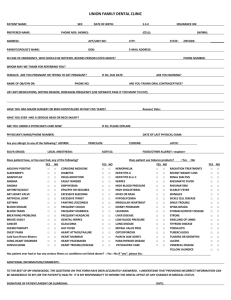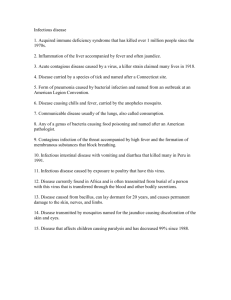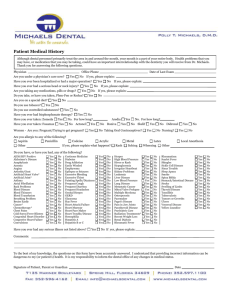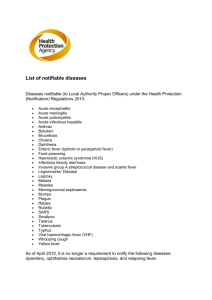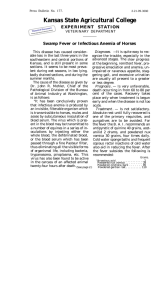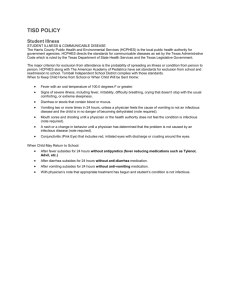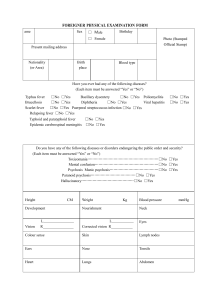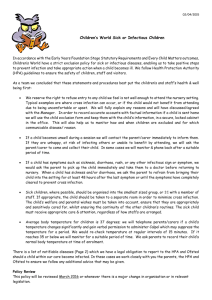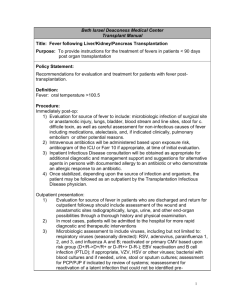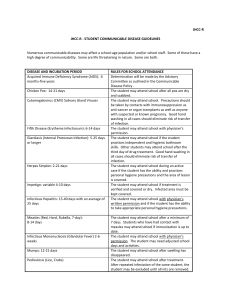The Infectious Disease Project
advertisement
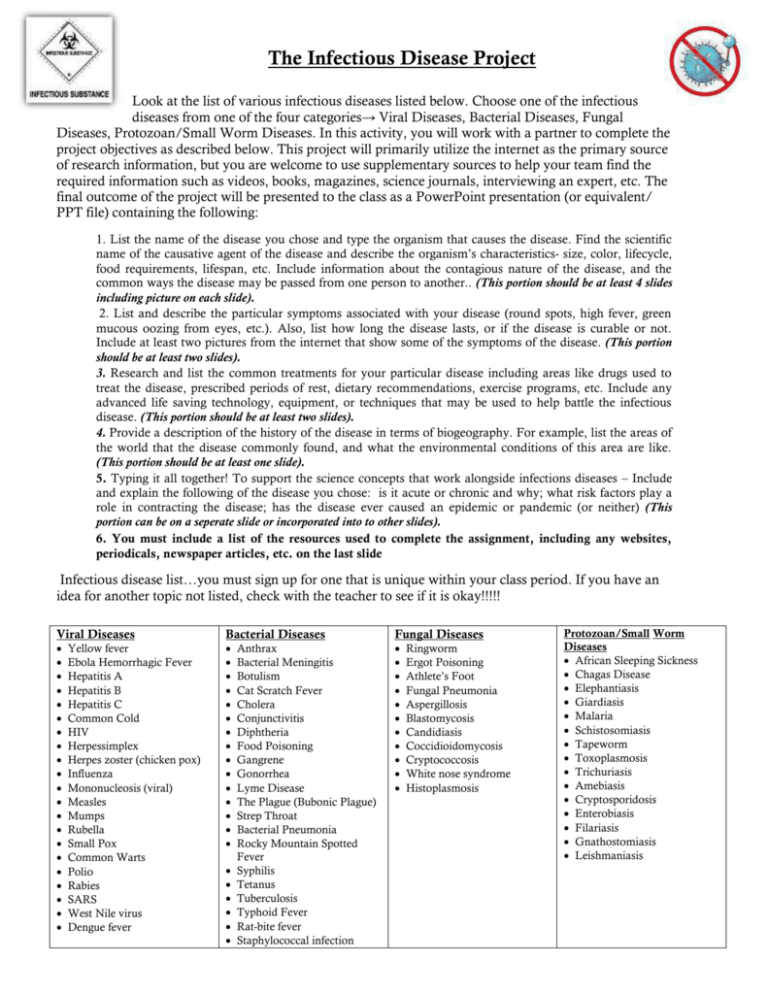
The Infectious Disease Project Look at the list of various infectious diseases listed below. Choose one of the infectious diseases from one of the four categories→ Viral Diseases, Bacterial Diseases, Fungal Diseases, Protozoan/Small Worm Diseases. In this activity, you will work with a partner to complete the project objectives as described below. This project will primarily utilize the internet as the primary source of research information, but you are welcome to use supplementary sources to help your team find the required information such as videos, books, magazines, science journals, interviewing an expert, etc. The final outcome of the project will be presented to the class as a PowerPoint presentation (or equivalent/ PPT file) containing the following: 1. List the name of the disease you chose and type the organism that causes the disease. Find the scientific name of the causative agent of the disease and describe the organism’s characteristics- size, color, lifecycle, food requirements, lifespan, etc. Include information about the contagious nature of the disease, and the common ways the disease may be passed from one person to another.. (This portion should be at least 4 slides including picture on each slide). 2. List and describe the particular symptoms associated with your disease (round spots, high fever, green mucous oozing from eyes, etc.). Also, list how long the disease lasts, or if the disease is curable or not. Include at least two pictures from the internet that show some of the symptoms of the disease. (This portion should be at least two slides). 3. Research and list the common treatments for your particular disease including areas like drugs used to treat the disease, prescribed periods of rest, dietary recommendations, exercise programs, etc. Include any advanced life saving technology, equipment, or techniques that may be used to help battle the infectious disease. (This portion should be at least two slides). 4. Provide a description of the history of the disease in terms of biogeography. For example, list the areas of the world that the disease commonly found, and what the environmental conditions of this area are like. (This portion should be at least one slide). 5. Typing it all together! To support the science concepts that work alongside infections diseases – Include and explain the following of the disease you chose: is it acute or chronic and why; what risk factors play a role in contracting the disease; has the disease ever caused an epidemic or pandemic (or neither) (This portion can be on a seperate slide or incorporated into to other slides). 6. You must include a list of the resources used to complete the assignment, including any websites, periodicals, newspaper articles, etc. on the last slide Infectious disease list…you must sign up for one that is unique within your class period. If you have an idea for another topic not listed, check with the teacher to see if it is okay!!!!! Viral Diseases Bacterial Diseases Fungal Diseases Yellow fever Ebola Hemorrhagic Fever Hepatitis A Hepatitis B Hepatitis C Common Cold HIV Herpessimplex Herpes zoster (chicken pox) Influenza Mononucleosis (viral) Measles Mumps Rubella Small Pox Common Warts Polio Rabies SARS West Nile virus Dengue fever Anthrax Bacterial Meningitis Botulism Cat Scratch Fever Cholera Conjunctivitis Diphtheria Food Poisoning Gangrene Gonorrhea Lyme Disease The Plague (Bubonic Plague) Strep Throat Bacterial Pneumonia Rocky Mountain Spotted Fever Syphilis Tetanus Tuberculosis Typhoid Fever Rat-bite fever Staphylococcal infection Ringworm Ergot Poisoning Athlete’s Foot Fungal Pneumonia Aspergillosis Blastomycosis Candidiasis Coccidioidomycosis Cryptococcosis White nose syndrome Histoplasmosis Protozoan/Small Worm Diseases African Sleeping Sickness Chagas Disease Elephantiasis Giardiasis Malaria Schistosomiasis Tapeworm Toxoplasmosis Trichuriasis Amebiasis Cryptosporidosis Enterobiasis Filariasis Gnathostomiasis Leishmaniasis
